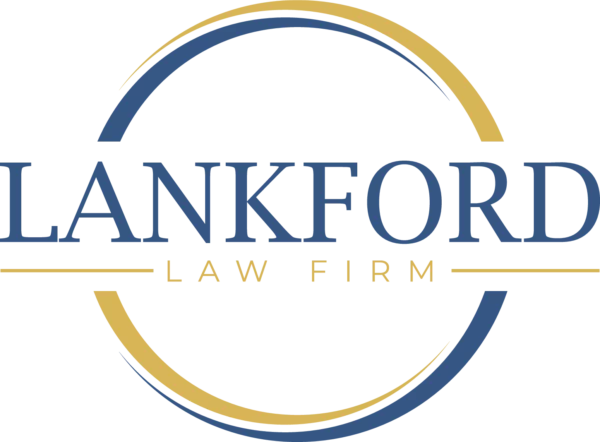When you rent space for your business, you’ll probably sign a commercial lease, and the success of your business could hinge on the terms of that lease. Business lawyers in Florida routinely review leases for business owners and provide those owners with reliable, insightful advice.
What do Florida business owners need to know about commercial leases? What are the rights of commercial tenants? When it’s time to lease space for your business, how will a business attorney be able to help you? If you’ll keep reading, those questions are about to be answered.
A commercial lease is usually a complicated legal document that gives the landlord advantages and places restrictions on the tenant. However, the terms of commercial leases are often negotiable.
With a good attorney’s help, you can probably negotiate a lease agreement that works well for you and for the landlord. The first thing to understand is that there are three basic types of commercial leases based on the three ways that a landlord’s costs are passed to tenants.
HOW DOES A FULL-SERVICE COMMERCIAL LEASE WORK?
With a full-service or “gross” lease, tenants pay the same rent each month. It’s convenient, so long as you clearly understand what is and what is not included. Consider utilities, maintenance, and costs like pest control.
Make sure that you know what you will actually pay for and not pay for. All of the terms need to be clearly set forth in a commercial lease agreement.
HOW DOES A NET LEASE WORK?
With a net lease, the tenant and landlord share costs like insurance, building maintenance, and taxes:
- If you sign a “single” net lease, you’ll pay both rent and property taxes while the landlord pays for utilities, maintenance, and other property costs.
- If you sign a “double” net lease, you’ll pay for taxes and insurance as well as rent.
- If you sign a “triple” net lease, you’ll pay for building maintenance as well as insurance, taxes, and rent.
When other tenants share a building with you, whatever expenses you pay are based on your percentage of the total square footage.
HOW DOES A MODIFIED GROSS LEASE WORK?
A modified gross lease typically makes the tenant responsible for rent and for particular, agreed-on expenses like minor repairs or maintenance services, with the landlord paying the remaining expenses.
When you sign a commercial lease, know what kind of lease it is, know who will be paying what, and determine what your total potential costs will be.
What else should you consider before you sign a commercial lease? What else should you know? You should know exactly how much space you will actually have available for your business operation, how long the lease is good for, and who your neighbors are going to be.
WHAT IS “RENTABLE” SQUARE FOOTAGE AND “USABLE” SQUARE FOOTAGE?
Commercial leases are usually offered on the basis of “rentable” square footage rather than “usable” square footage, and the distinction is important to understand.
If you share a building with other tenants, you will pay rent for your operation’s usable square footage along with a percentage of the rent for common areas – corridors, restrooms, staircases, and so forth.
In other words, you will pay rent for more square footage than you will actually use for your business operation. As you look into different properties, determine the actual usable square footage so that you can compare the various sizes and costs.
IS A LONG-TERM LEASE YOUR BEST OPTION?
As you might imagine, commercial landlords like long-term leases. Five- or ten-year leases are standard. A long-term lease can be good for a number of reasons, but the same lease can become a burden if your business goes under – or if it prospers and outgrows the space.
A one- or two-year lease that can be renewed is probably a better option for start-ups and small businesses. Before you sign a commercial lease, try to negotiate a cap on rent increases.
WHAT IF YOU MUST TERMINATE A COMMERCIAL LEASE EARLY?
Negotiate provisions in your commercial lease so that if, or any reason, you must terminate the lease, you’ll be able to do it more-or-less painlessly. Your commercial lease should allow you to sublet the space if cannot pay the rent or if you outgrow the space and move to another location.
Your lease should also allow you to transfer the lease should you sell the business so that the new owner may remain at the same location. You should also negotiate in advance the penalties that will apply if you must terminate the lease.
WHO WILL YOUR NEIGHBORS BE?
Adjacent tenants may have a substantial effect on your operation. The smaller stores in shopping malls, for example, depend on the larger “anchor” stores to draw customers. A co-tenancy clause lets you terminate a lease if another tenant – that you depend on – leaves.
You should also ask for an exclusive use clause so that a competing business is not operating in the same building. If you own a bookstore or an ice cream shop, you probably do not want another bookstore or ice cream shop at the same location.
WILL YOU BE ABLE TO MAKE IMPROVEMENTS? IF SO, WHO PAYS?
If a space that you want to rent must be modified to meet your business operation’s needs, you should negotiate to have these provisions included in your commercial lease:
- your right to make improvements
- which party pays for improvements
- the ownership of the improvements
- whether the original condition must be restored upon expiration of the lease
Commercial leases are binding legal documents. You must understand the terms and conditions of a commercial lease when you sign it, and before signing, you must negotiate an agreement that both meets your immediate needs and protects your long-term interests.
HOW DO BUSINESS ATTORNEYS HELP THEIR CLIENTS?
Business lawyers in Florida who have commercial real estate experience routinely help this state’s business owners and routinely negotiate commercial leases for their business-owner clients.
If you already own a small business in Florida, or if you start or purchase one, you must establish a relationship with a business lawyer you trust. That way, when you need advice about a lease – or about other legal challenges – your attorney will already know your operation and its needs.
Owning and operating a business is one of the toughest jobs there is. You must have a good business attorney’s help. That’s your right, and making the call to a good business lawyer is the right thing to do.


 Call Us Now
Call Us Now Email Us Now
Email Us Now


